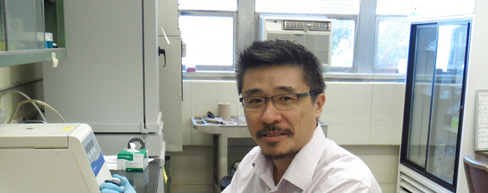非常抱歉,
你要访问的页面不存在,
非常抱歉,
你要访问的页面不存在,
非常抱歉,
你要访问的页面不存在,
验证码:

职称:professor
所属学校:Catholic University of America
所属院系:Biology
所属专业:Biology/Biological Sciences, General
联系方式:(202) 319-5278
B.S., Biochemistry, University of Wisconsin-Madison Ph.D., Molecular Genetics and Cellular Biology, University of Chicago Postdoctoral Scholar, Single Molecule Nucleosome Dynamics, Stanford University Senior Research Fellow, Mechanisms of Genomic Instability, National Cancer Institute
Using the budding yeast, S. cerevisiae, as a model system, my laboratory studies several areas of research related to genome stability and plasticity: (1) Elucidating the mechanism(s) responsible for integrating nutrient signals with chromosome segregation and the DNA damage response (DDR), (2) Mapping complex haploinsufficient interactions that lead to chromosome instability, (3) Investigating how genome instability is linked to the mechanism of neurodegeneration in Huntington's disease, and (4) Developing single cell technologies to study the aging process. We apply and develop genome-scale and single cell resolution tools with the aim of building a comprehensive understanding of metabolic signaling and its connection to chromosome structure and function, particularly within the context of genome maintenance and the etiology of disease. (1) Nutrient availability is an important factor in tumorigenesis and in maintenance of healthy tissue. Notably, cancer cells are known to harbor mutations in genes that serve important roles in nutrient signaling and as early as the 1930’s Otto Warburg provided evidence that cancers have a unique metabolic program that differs profoundly from normal cells. Key nutrients such as glucose, amino acids, phosphate, and ammonium can activate signaling cascades resulting in significant changes in the transcriptome that modulate cellular physiology and the decision to enter or exit the cell division cycle. The Ras/Protein kinase A (PKA) signaling pathway is a key regulator that senses intra- and extracellular glucose and transduces signals to activate or inhibit cell growth in both yeast and human cells. We previously discovered that cells with deregulated PKA activity has greater than a 20-fold increase in the rate of chromosome loss compared to wild-type cells. We are currently using targeted and genome-scale genetics and molecular approaches to elucidate the mechanism by which PKA signaling can modulate chromosome segregation fidelity. We also have a very limited understanding of how metabolic signaling impacts the DDR, which ultimately can lead to changes in the integrity of the genome. In particular, glucose deprivation can occur when blood supply to cells become restricted as is the case in tissue ischemia and in solid tumors, where rapidly proliferating cells compete for limited glucose and oxygen. Toward investigating how metabolic signaling is integrated with the DDR we are (1) using genome-scale genetics in the model system, S. cerevisiae, to explore if different nutrient conditions lead to “rewiring” of the network of pathways required for a proper DDR and (2) dissecting the changes in protein-protein interactions essential for the DDR under specific nutrient conditions.